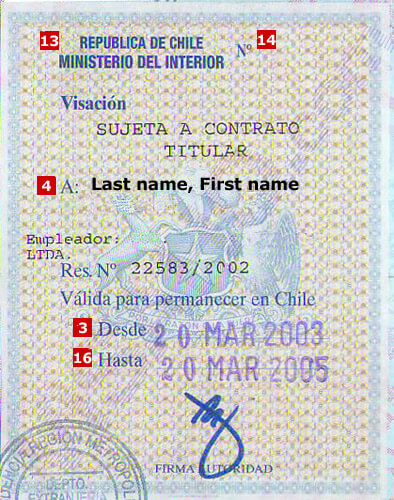Chile Embassy list in Haiti
Need help?Chat with us
Importance of Trip Registration at the Chile Embassy
Registering your trip with the Chile embassy is crucial for safety, as it allows the embassy to assist citizens during emergencies. In scenarios such as natural disasters—like earthquakes or floods—having a record of your whereabouts enables prompt communication and support. Similarly, in cases of political unrest, registered travelers can receive timely warnings and guidance on safe routes or evacuation procedures. Furthermore, in medical emergencies, the embassy can facilitate access to health care and communicate with family members. By registering, travelers enhance their own safety and ensure that the embassy can act effectively on their behalf during critical situations.
Chile Embassy FAQs
Can the Chile embassy assist in legal issues abroad?
Yes, the Chile embassy can provide guidance and general support for legal issues, helping connect you with local legal resources.What should I do if I lose my Chile passport in Haiti?
If you lose your Chile passport while in Haiti, report it to the local authorities and immediately contact the Chile embassy for assistance in obtaining a replacement.Does the Chile embassy provide notary services?
Yes, the Chile embassy offers notarial services, including the notarization of documents for use in Chilean matters.Can the embassy help find local medical facilities?
Yes, the embassy can recommend local hospitals or medical practitioners if you require medical assistance during your stay in Haiti.
Services Provided by Chile Embassies in Haiti
Passport Services
- Issuance of new passports
- Passport renewal
- Lost passport replacement
Visa Issuance for Foreign Nationals
- Visa applications for foreign visitors to Chile
Assistance in Legal or Medical Emergencies
- Support during legal issues
- Guidance in medical emergencies
Travel Alerts and Safety Updates
- Regular updates on safety information and travel advisories
Support for Nationals Detained Abroad
- Assistance for Chilean nationals detained or arrested in Haiti
Summarized Diplomatic Presence
Chile maintains a vital diplomatic presence in Haiti, primarily through its embassy located in Port-au-Prince. The embassy serves crucial functions, including promoting bilateral relations, facilitating trade, and providing consular assistance to Chilean citizens. Through diplomatic engagements, Chile aims to strengthen cooperation in areas such as development and security. The embassy plays an essential role in fostering international relations, ensuring that the interests of Chile and its citizens are safeguarded while providing a channel for dialogue and support in the region.
